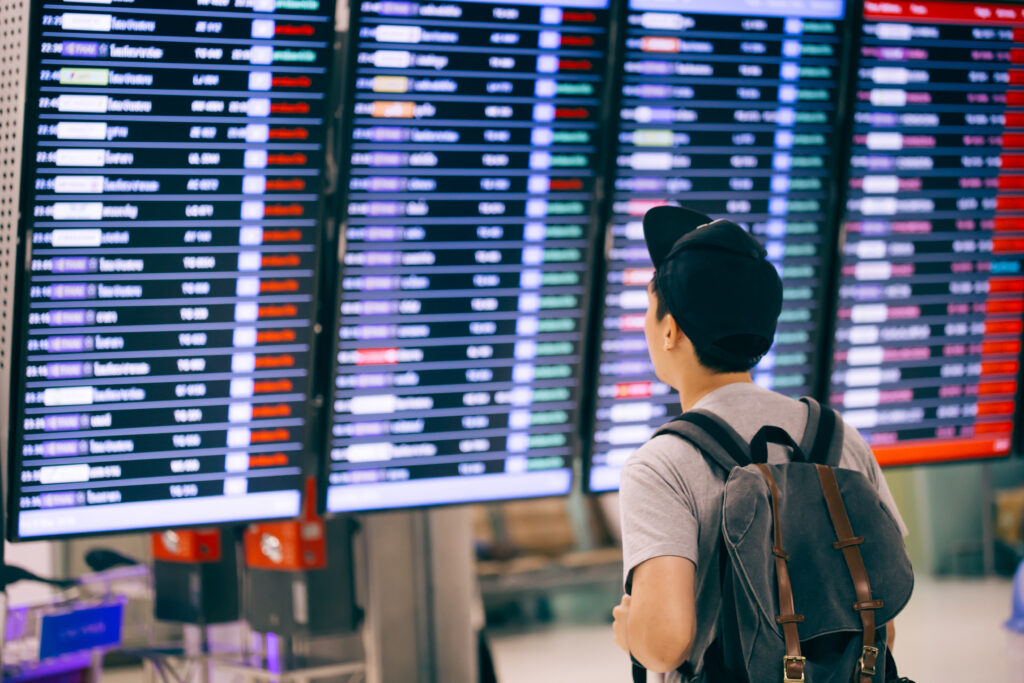You may have noticed that international education—and you, international students—are getting a lot of media attention these days.
From visa changes and enrolment caps to debates over age limits and the housing crisis, the news has been a whirlwind of information that can feel overwhelming.
That’s why we’ve compiled everything into one article, giving you a clear summary of the latest developments and how they’re connected.
Record high number of international students in Australia
In April this year, Australia hit a record number of 700,000 international students making up 25% of the country’s 2.8 million temporary migrants.
This follows measures introduced by the Australian Government that encouraged overseas students to return after COVID-19. This included relaxing the working hours cap and increasing post-study work rights. This led to a faster and larger return of international students than expected and has since sparked concerns over migrant exploitation, education quality, and a debate about who is to blame for the housing crisis.
To manage this influx, the Australian Government announced plans to cut the net migrant intake by half within the next two years.
Housing crisis debate
One significant topic in the news is the suggestion that international students are exacerbating Australia’s housing crisis. A 2023 report by The Institute of Public Affairs suggested that international students were a major factor in this issue. However, a new report by the Student Accommodation Council reveals a different perspective. According to their findings, international students account for only four per cent of Australia’s rental market. In fact, the rise in rental prices began in 2020, when international student arrivals significantly decreased due to the pandemic.
The report highlights other factors contributing to the housing crisis, such as the increase in smaller households, higher intrastate migration, and construction costs. These insights suggest that the issue is more complex than merely the presence of international students. For more details, read the full article here.
Exploitation of migration system
Another area of recent media focus is the Australian Government’s efforts to crack down on the exploitation of the migration system and improve the quality of education for international students. Last October, The Nixon Review, an investigation led by former Chief Commissioner of Victoria Police Christine Nixon, exposed widespread abuses in the visa system, including cases of exploitation. In response, the government is implementing stricter regulations on education and migration agents to protect international students.
These measures include tighter background checks and higher penalties for agents involved in dishonest practices and banning agents from earning commissions for student transfers between institutions, ensuring that transfers are based on students’ best interests.
For more detailed information, read the full article here.
Tighter visa regulations
This year, the Australian government has introduced more rigorous requirements for student visa applicants to reduce temporary migrants and enhance the integrity of international education. These changes have led to an increase in rejected visa applications. Key measures include:
- Higher English language proficiency: Minimum IELTS score requirement increased from 5.5 to 6.0.
- Suspension of high-risk education providers: Institutions with high rates of visa cancellations and refusals due to fraud may be suspended from recruiting international students. Applicants to these institutions must provide additional evidence and face a higher risk of visa rejection.
- New Genuine Student test: From March 2024, visa applicants must complete the Genuine Student (GS) requirement, replacing the Genuine Temporary Entrant (GTE) requirement.
- Closure of post-study work rights extension: The extended post-study work rights will no longer be available from mid-2024.
- Age limit changes: The maximum eligible age for the Temporary Graduate visa program will be reduced from 50 to 35 years for most streams, starting 1 July 2024.
- New financial requirements: The minimum savings required for a student visa will rise from AUD 24,505 to AUD 29,710 for the primary applicant. This increase aims to better reflect the true cost of living in Australia and ensure students can sustain a minimum standard of living.
Limit on international student enrolments
One significant development is the introduction of a cap on international student enrolments, announced recently (May 2024) as part of the Draft International Education and Skills Strategic Framework. This proposed cap aims to maintain high educational standards by setting enrolment limits at the provider level. This change addresses the challenges posed by the recent surge in international student numbers, ensuring that educational quality and student support remain uncompromised.
For more details on the cap, read the full article here.
Federal Budget and the Coalition’s response
The 2024-2025 Federal Budget reinforced the proposed cap on international student enrolments, stating that universities must build new student accommodation if they want to exceed their allocated number of international students. The budget also introduced several other measures affecting international education, including reducing the overall skilled migration intake by over 5,000 places, launching the MATES Scheme for Indian graduates, allocating $18.3 million for migration reforms and establishing a National Student Ombudsman to handle student complaints.
With a federal election due within a year, the Coalition—the main opposing party—used their 2024/25 Budget reply to provide insight into their campaign strategy. Leader of the Coalition, Peter Dutton promised to cut permanent migration by a quarter in the first two years of power, reducing the intake from the already lowered 185,000 to 140,000. He emphasised that his “priority is restoring the dream of home ownership.”
Dutton’s response has received some criticism. Education Minister Jason Clare remarked, “The real message out of that speech is: don’t trust Dutton. If he’s the person who broke the migration system, why would you trust him to fix it?”
Tips to stay informed
We understand how overwhelming it can be to keep up with all the changes and news affecting international students. Here are some practical tips to stay informed:
- Follow reliable news sources: Regularly check reputable news websites and educational portals for updates on visa regulations, enrolment caps, and other relevant policies. Learn to identify and avoid misinformation and disinformation. Learn more in our guide to Australian media.
- Visit government websites: Check official government websites, such as the Department of Home Affairs and Study Australia, for the latest announcements and detailed information on visa requirements and policy changes. If you prefer to get information from social media, Study Australia’s Instagram also provides timely updates in bite-sized form.
- Stay connected with your university: Keep in touch with your educational institution’s international student office. They often provide important updates and guidance related to your studies and visa status.
- Engage with student networks: National associations include the Council of International Students Australia (CISA) and Australian Federation of International Students (AFIS). Most education providers in Australia also have their own student associations. Visit the website at your place of study for more information.





